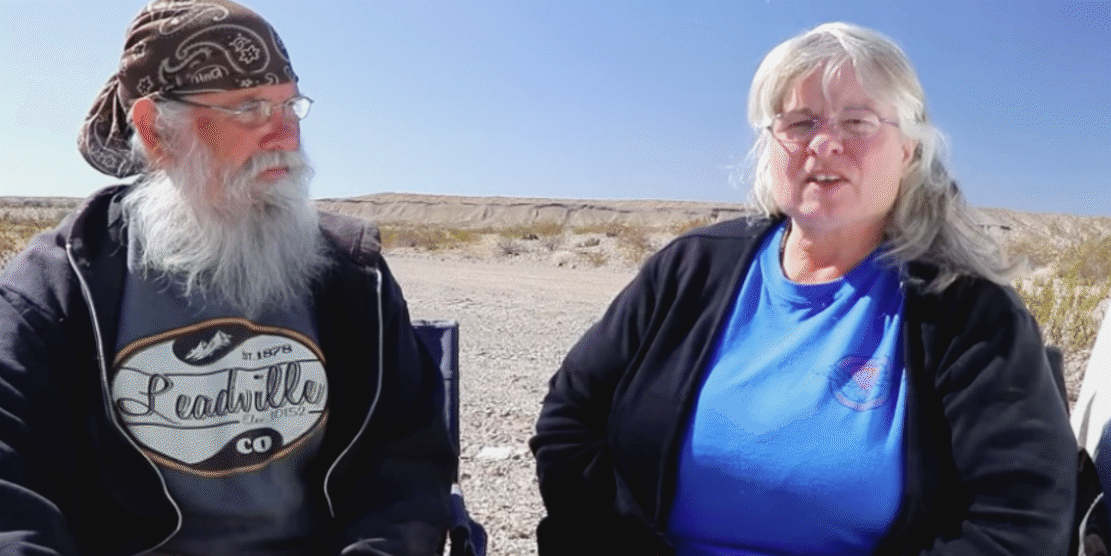
WHEN WE HIT THE ROAD we usually leave behind whatever medical and dental arrangements we had—if we had any to start with. Your medical insurance might have been tied to a state or a certain provider network. You’re without a primary care physician, who is your gateway to specialized care. It seems that urgent care clinics and emergency rooms become our only resources. And money is always an issue. What can we do besides cross our fingers and wait for Medicare eligibility?
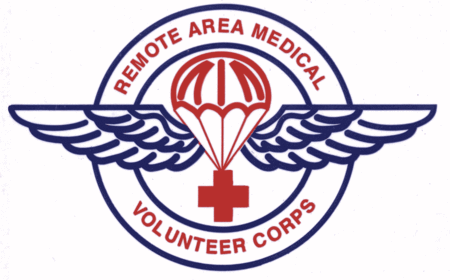
One answer is Remote Area Medical (RAM), an organization of volunteer medical, dental and vision professionals that runs free mobile clinics in underserved parts of the United States.
Suanne Carlson, head of Homes On Wheels Alliance, was recently divorced and had lost her dental insurance. She thought she would be okay and could go to the excellent, low cost dentists in Mexico if a need should arise. The need did arise—a severe toothache—while she was about 1,400 miles from Mexico.
Luckily, Suanne remembered a post on the CRVL forums about Remote Area Medical. She looked up their website and saw a listing of their various mobile clinics. There were two coming up in Nevada. That could work because she was already headed in that direction.
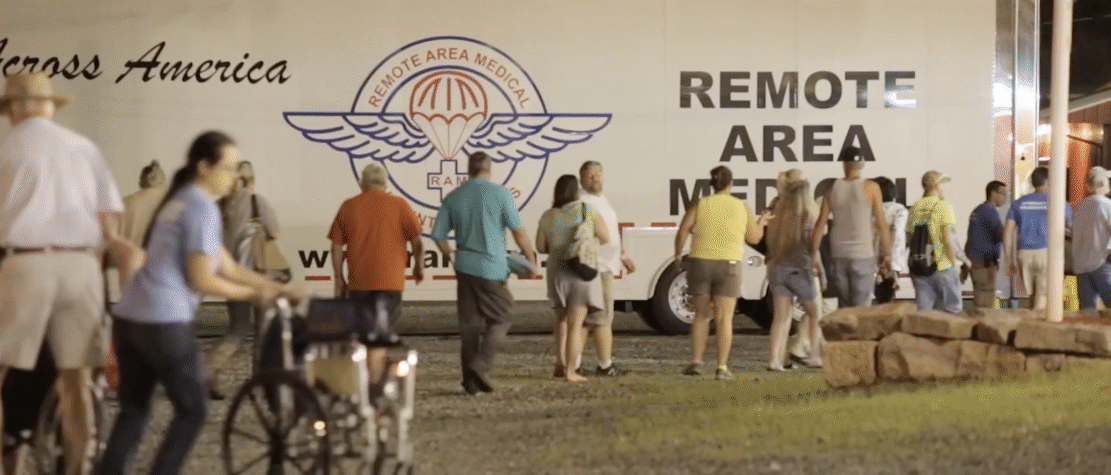
“They go from community to community with their large trucks that hold their equipment, their labs, their staff, and set up a full scale dental office with, could be, hundreds of dentists, oral surgeons and hygienists, with the full sterilization process to support that.” The same is true with medical and vision care. There’s mobile X-ray and RAM is even set up to make eyeglasses onsite.
“It is quite the experience to be a patient for RAM. They’ve set up a process that’s fair, however, it’s rather onerous in that there’s a lot of waiting.”
Suanne arrived at the designated parking area in Reno. They opened the gates at midnight, and as people drove in they were given a numbered ticket and instructed to be at the shuttle pickup at 4:30 AM to be taken to the actual clinic in a huge gymnasium. At the gym they waited for the rest of the people being shuttled, then lined up in the order of their numbers.
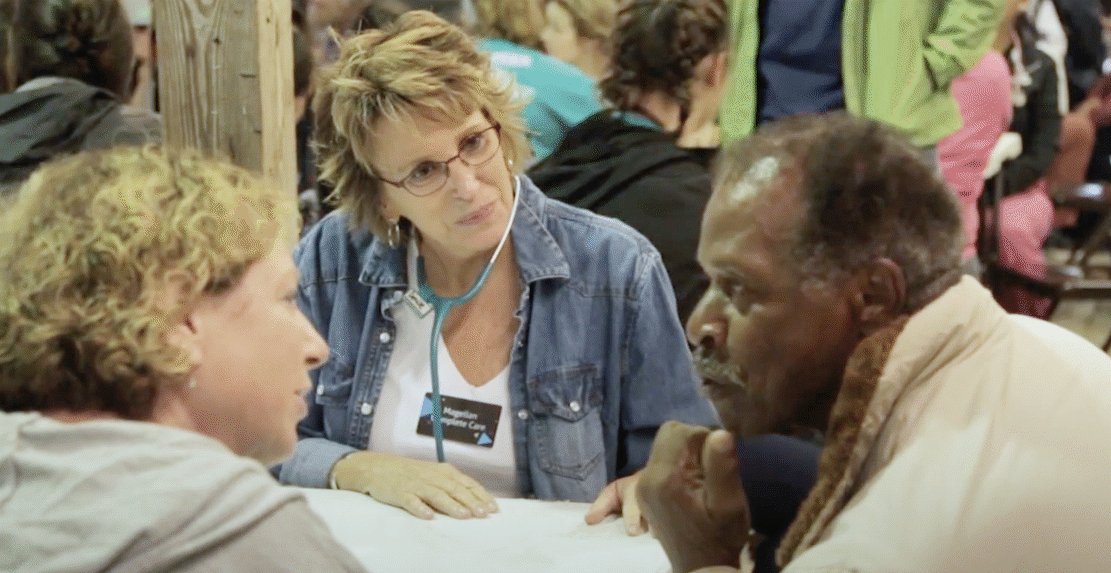
At 6:00 they were let in for registration where volunteers recorded patients’ name, age, emergency contact and such. They ask no income questions or insurance questions. It’s totally free to anyone who shows up. After that patients were sent to an RN or EMT for triage, where they’d check vitals, take medical histories and ask about meds you might be taking. If they didn’t find something that required other attention, like high blood pressure or diabetes, patients proceed to the medical, dental or vision area.
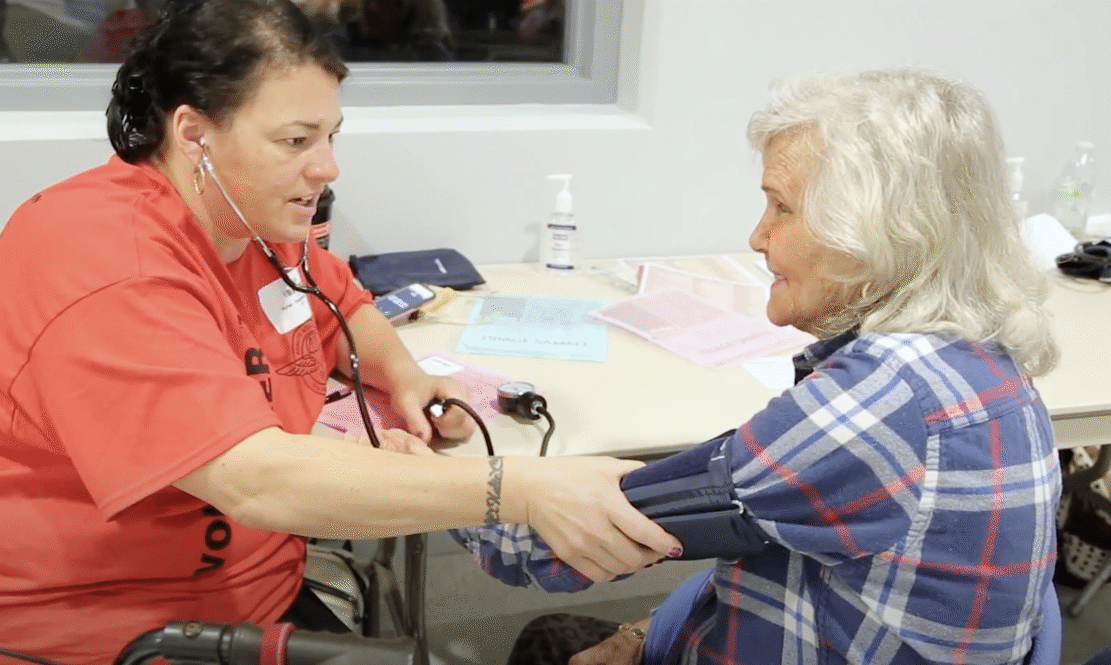
At this point, because some patients take longer to go through triage, the number they had been issued at the beginning no longer applies. Instead, it’s first-come-first served. You take a seat at the end of the medical, dental or vision line, and everyone moves up a chair when the person at the head of the line is called in.
“As I was waiting there, I had the person who was in charge of the dental clinic come up to me and just talk to me. I’m not a nervous Nelly at all. I’m pretty calm, But she knew the extraction was going to be difficult, and she was there to comfort me. It was really nice.”
“The dentist that served me, without hedging anything, was the best I’ve ever had, both in terms of skill and bedside manner.”
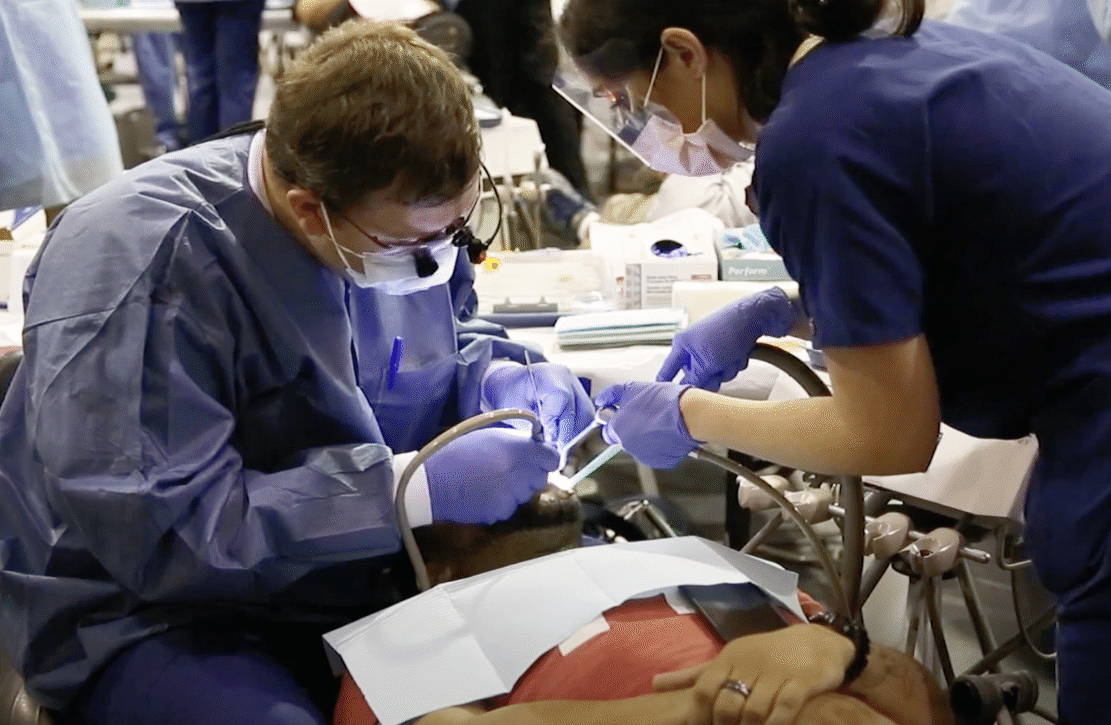
RAM has done so many of these mobile clinics they have the logistics of power, water, sterile procedures and other necessities all worked out.
Asked if she felt like anyone was looking down on her, Suanne answered, “I was not exactly sure how people were looking at me. But as I waited, and watched the volunteers, and interaction with the volunteers, I felt cared for, advocated for. There was no sense of judgment. Not at all. It was really kind of extraordinary.”
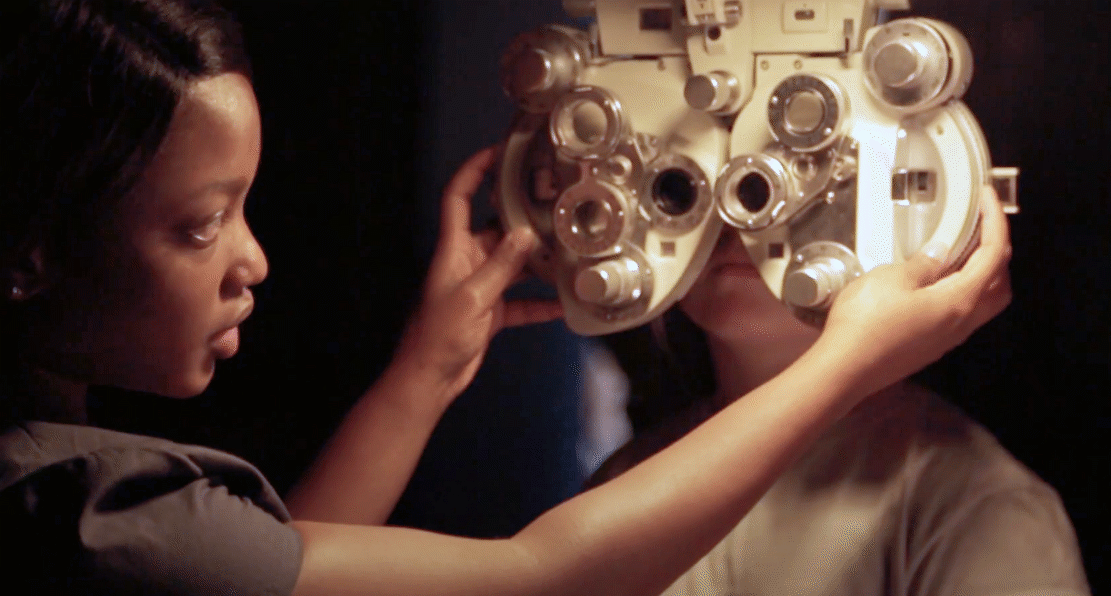
RAM, headquartered in Tennessee, has a small paid staff that comes to each clinic. But there are hundreds and hundreds of volunteers with high qualifications in their field that come to each clinic.
“It really does my heart good to see people with so much education willing to provide these services free to their communities.” Suanne continued, “Even while I was there, I was so impressed by this organization, it’s compassion, and the quality of service, and even the quality of the organizing that happened, that I thought, ‘I want to be part of this.’ In addition to feeling I wanted to pay back because they had given to me so freely, I thought it would be a cool organization to be part of.” So she volunteered for the next clinic in Pahrump. First she worked registering patients. Then she learned how to electronically file medical records. At another clinic she worked as a runner, interacting with patients, introducing them to the medical professionals. “That was probably my most enjoyable volunteer experience. I got to meet the patients and see what a difference the services made in individual lives.”
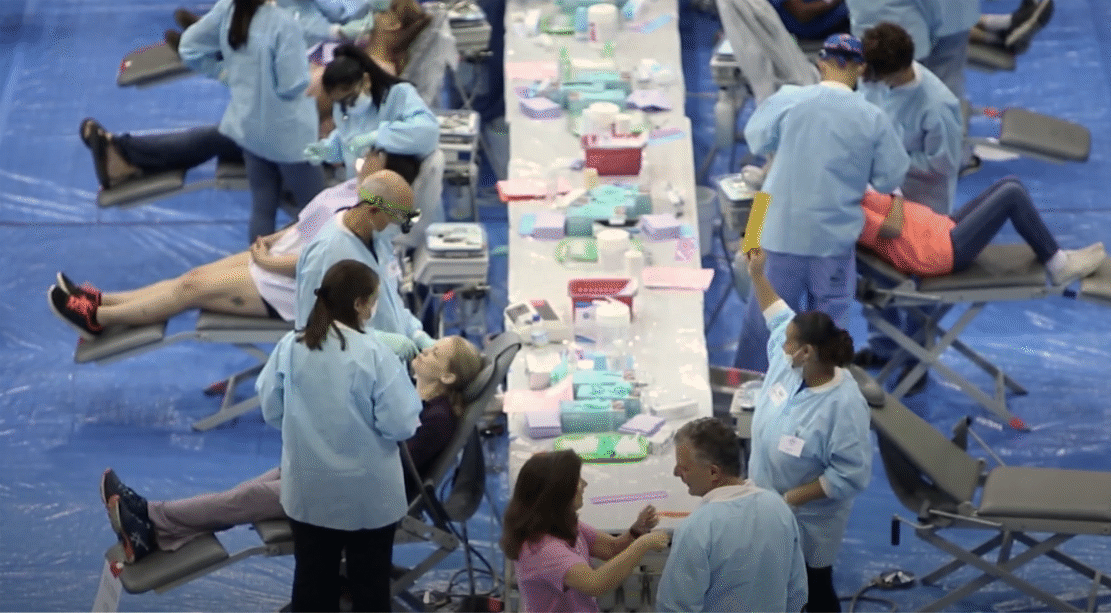
“I don’t share with people very easily the lifestyle I live. I shared that very slowly with a couple of the staff. And I have met nothing but acceptance for living as a mobile vehicle dweller.”
You can learn more about Remote Area Medical at ramusa.org. Their 2022 schedule is primarily in Tennessee and other eastern states. If you’re not near one of those clinics, RAM also offers virtual appointments.
Do you need to speak with a healthcare provider? Location is no longer a barrier to your access. All VIRTUAL appointments are FREE, and no insurance is required.
RAM is an example of the very best of humanity. People caring about people. It’s as if they say, “You have a need, I can meet it. Let’s get together.”

Wow this is sooooo important! Thank you so much.
Thank you for this vital info. I don’t need it myself but have met many people I’ll recommend this to.
Thank you for reminding us about RAM. They’ve been around a while and it’s good to know that they continue to provide excellent care.
looks like there will be one in Pahrump NV around the time of the next Bring Your On Van build
Wow! This us just awesome to hear about! Thanks. I r we I’ll pass this along to my contacts!
W O W, what a wonderful group of people taking care of the needy ones. God bless them all for caring !! Excellent information, Al.
Thank you so much for this information! I recently had toothache pain, severe and ended up paying full price for the extraction .
Excellent! And the thought of volunteering, genius!
While moving through towns along your route, check out the local library as an excellent source of upcoming events, also.
Especially food giveaways, and book sharing events. We have book boxes loaded with free reading materials. Some brilliant minds have now copied that idea and loaded others with food, so watch out for them.
Happy traveling.
Prayers go out for all of you.
Great info! Thank you for sharing it ?
I am not yet nomadic but it is ruminating in my mind more and more.
I have worked in Medical ancillary services & would love the opportunity to volunteer for this worthy cause.
I will certainly check out their website. I am an Alabama girl and can perhaps be of service in the Southeast area
What an incredible work that people would do this. Affordable health care that folks can actually get to while traveling can be a big dealbreaker for many that long to be on the road. Thank you for sharing this with us!
That’s awesome, thank you for sharing. I would love to help out in NV! And thank you for supplying their website too???
I signed up to work the Pahrump event on 10/2 and will be there to help set up on 10/1. Thanks again for the info!
What a wonderful organization! Thank you for being there.
I went to their website and see that they have RAM veterinary too.
This is a really good article. This should be spread to all nomads. Thanks.
Hi every body.We are senior couple,with minimal resource.Want to know if its possible to survive without health insurance and only depend on RAMUSA or if there are more such like facilities ? Or which is the cheapest way to get .We have health conditions in this age and can barely afford medications.
We shift in eastern states usually.
Any comprehensive suggestions please.
Kiyani,
When I lived in Daytona Beach, FL there was an all-volunteer clinic called The Jesus Clinic. I found out about it through a co-worker at hospice who was a volunteer nurse. You might try a Google search of cities near you. If you need an Rx the doctors will write a script for the cheaper, generic names or sometimes they’d have the meds on hand. Don’t forget to try GoodRx. As for getting rid of insurance altogether, I wish I had an answer for you. It’s such an expensive safety net that covers less and less.
любительское порно скрытая камера https://zagruzik.com/ любительское секс видео бабушек
домашнее порно оргазм разговор
русское любительское порно видео с женой
домашнее порно огромные сиськи
любительское порно малолеток
порно видео бдсм госпожа
секс бдсм много
порно волосатых писек любительское
домашнее русское мжм порно видео скачать
домашнее порно русских видео юных девушек
порно двойное любительское
8d936fc